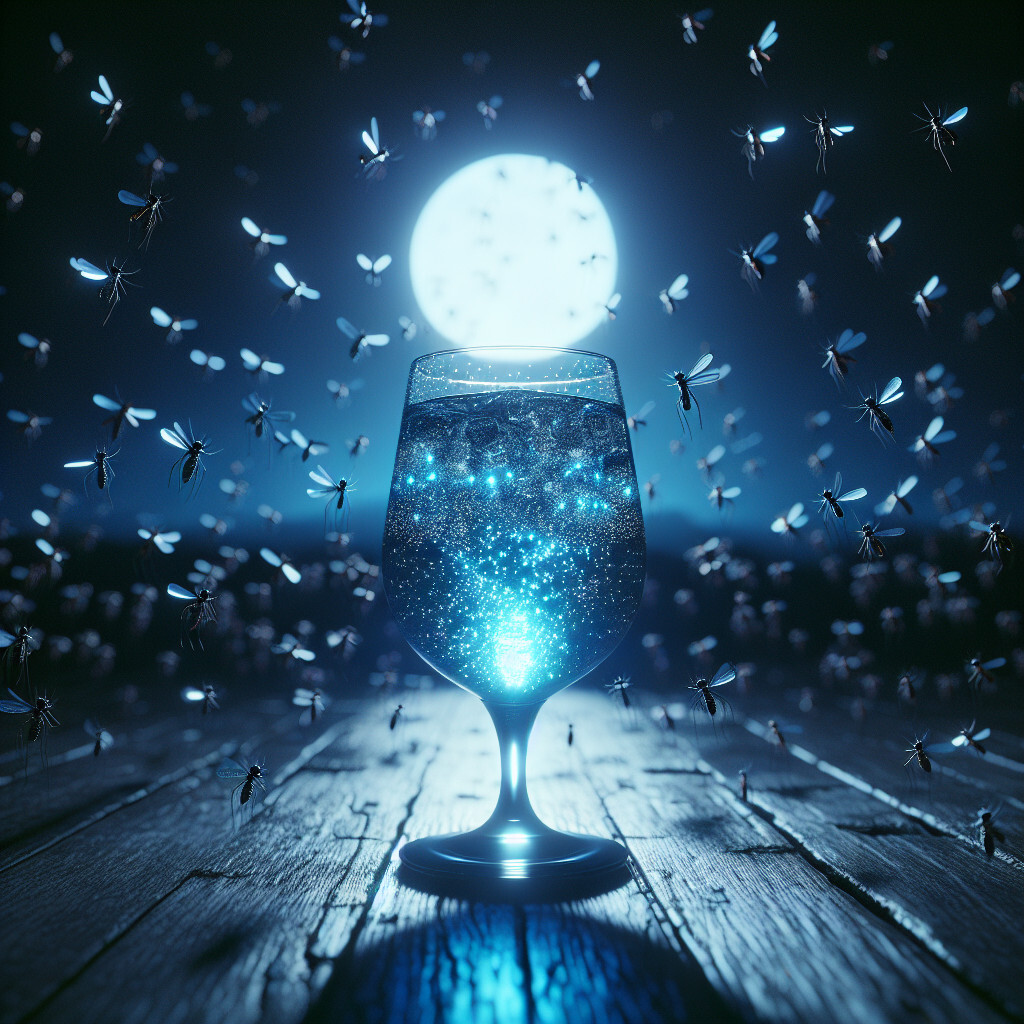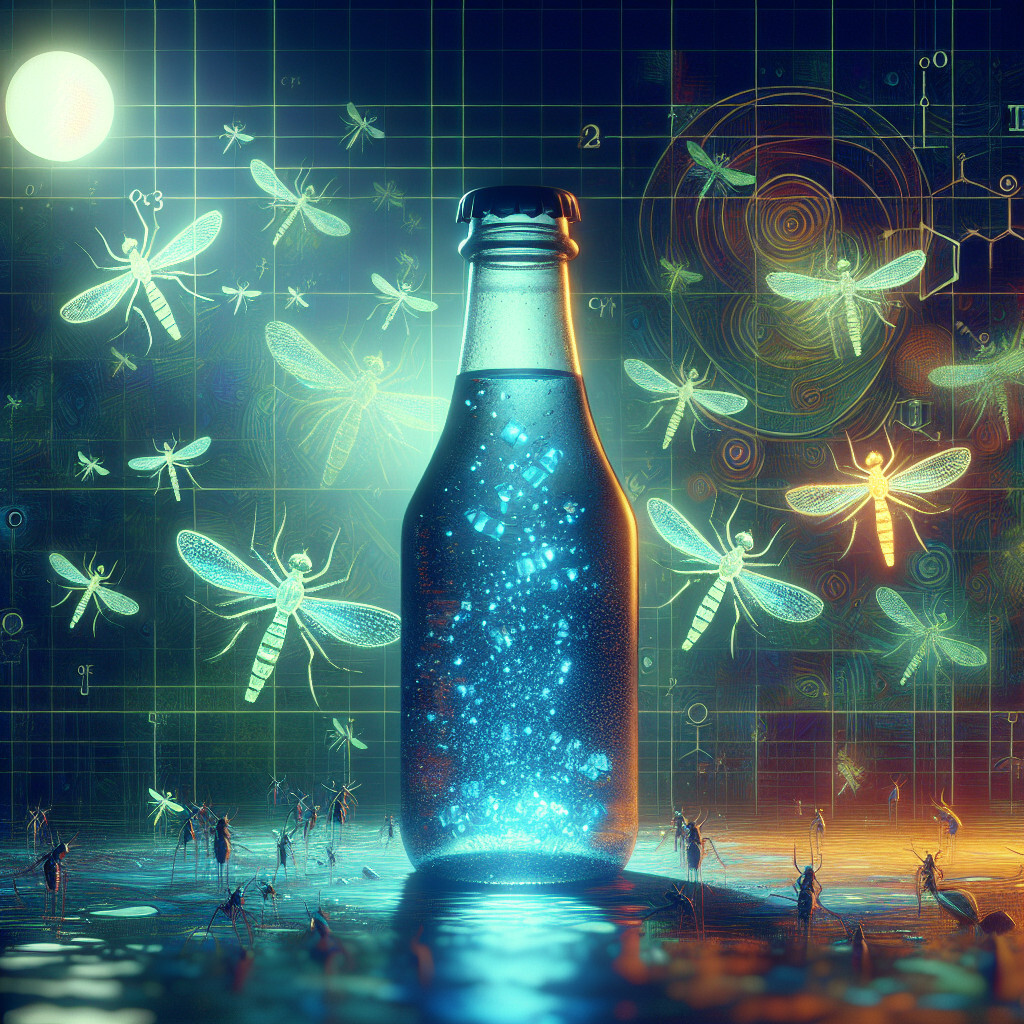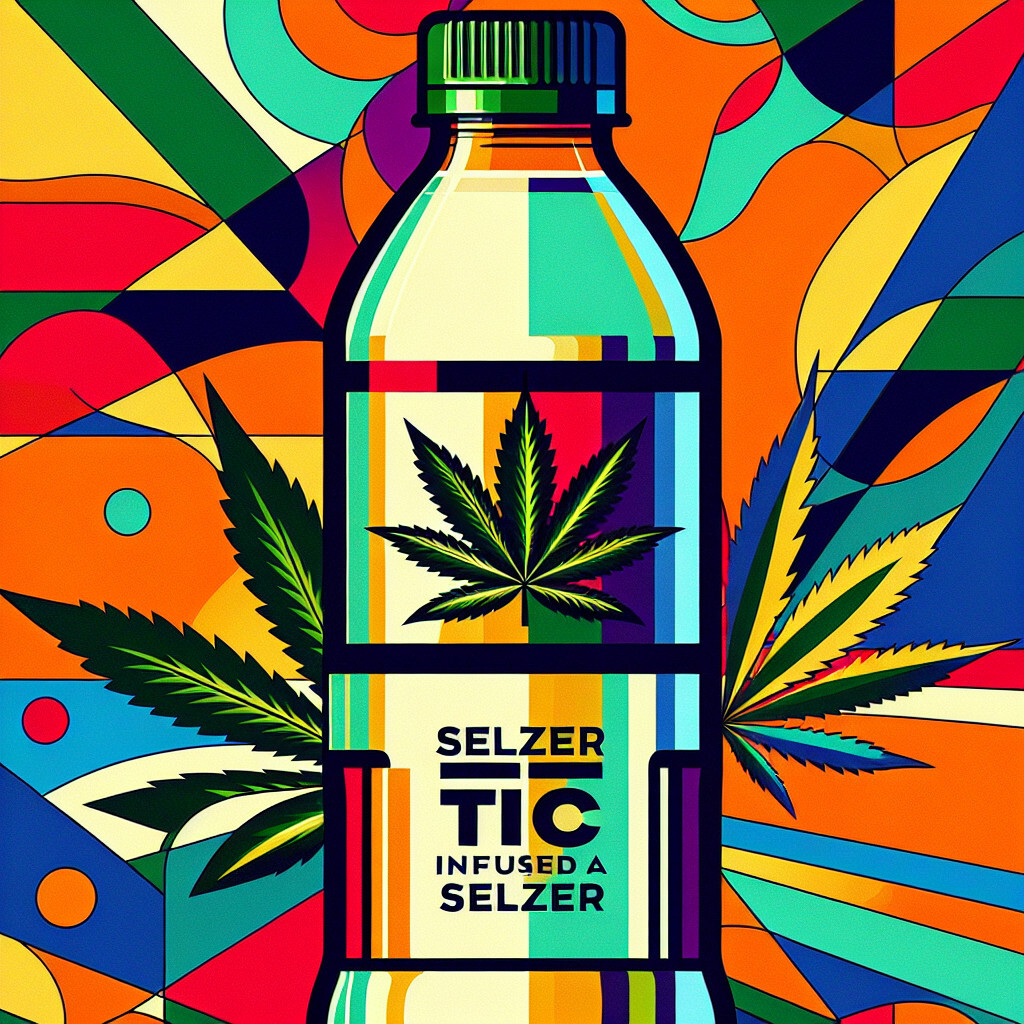-
Table of Contents
- Introduction
- Understanding the Role of Quinine in Tonic Water and Mosquito Repellent
- The Surprising Connection Between Tonic Water, Quinine, and Mosquitoes
- Exploring the Use of Tonic Water and Quinine in Mosquito Control
- The Science Behind Quinine, Tonic Water, and Mosquito Deterrence
- Q&A
- Conclusion
“Quench your thirst, repel mosquitoes – Tonic Water with Quinine.”
Introduction

Tonic water quinine mosquitoes refers to the concept that tonic water, which contains a compound called quinine, can potentially deter mosquitoes. Quinine, originally used as a treatment for malaria, is known for its bitter taste and has been incorporated into tonic water for flavor. The belief is that the quinine in tonic water can repel mosquitoes, although scientific evidence to support this claim is limited.
Understanding the Role of Quinine in Tonic Water and Mosquito Repellent
Tonic water, a popular mixer in cocktails, has a long and storied history that intertwines with the world of medicine and the fight against malaria. The key ingredient that gives tonic water its distinctive bitter taste is quinine, a compound extracted from the bark of the cinchona tree. Quinine has been used for centuries as a treatment for malaria, a disease transmitted by mosquitoes. This connection has led to a common belief that drinking tonic water can repel mosquitoes. However, the reality is a bit more complex.
Quinine was first discovered by the indigenous people of Peru, who noticed that consuming the bark of the cinchona tree could reduce the symptoms of malaria. The compound was later isolated and named quinine, and it became the primary treatment for malaria until the mid-20th century. Quinine works by interfering with the growth and reproduction of the malaria parasite within red blood cells. This makes it an effective treatment for the disease, but it does not necessarily prevent mosquito bites.
The British, during their colonial rule in India, were particularly affected by malaria. To combat this, they consumed quinine in the form of tonic water. However, the bitter taste of quinine was unpalatable, leading to the addition of gin, sugar, and lime to make the medicine more palatable, thus creating the classic gin and tonic cocktail.
The association between quinine and mosquito repellent likely comes from this historical use of tonic water as a malaria preventative. However, it’s important to note that while quinine can treat malaria, it does not repel mosquitoes. Mosquitoes are attracted to carbon dioxide and other compounds that humans naturally exhale, and quinine does nothing to mask or alter these attractants.
Furthermore, the amount of quinine present in modern tonic water is significantly less than what was used in the medicinal tonics of the past. The U.S. Food and Drug Administration (FDA) limits the amount of quinine in tonic water to 83 parts per million, which is far below the therapeutic dose for treating malaria. Therefore, drinking tonic water would not provide enough quinine to have any significant effect on mosquitoes or malaria.
In recent years, there has been interest in using quinine as a natural mosquito repellent. Some studies have suggested that quinine may have some repellent properties when applied directly to the skin. However, these studies are preliminary, and more research is needed to confirm these findings and determine the most effective way to use quinine as a mosquito repellent.
In conclusion, while quinine in tonic water has a historical connection to malaria treatment, it does not serve as an effective mosquito repellent. The amount of quinine in tonic water is too small to have any significant effect, and drinking tonic water will not protect you from mosquito bites or malaria. However, the potential of quinine as a natural mosquito repellent is an interesting area of research that warrants further investigation. For now, the best way to prevent mosquito bites is to use proven repellents, wear protective clothing, and avoid areas with high mosquito activity.
The Surprising Connection Between Tonic Water, Quinine, and Mosquitoes
Tonic water, quinine, and mosquitoes are three seemingly unrelated entities. However, upon closer examination, a fascinating connection emerges between these three elements. This connection is rooted in history, medicine, and biology, and it provides a unique perspective on how human ingenuity can turn a problem into a solution.
Tonic water, a popular mixer in cocktails, particularly gin and tonic, is known for its distinctive bitter taste. This bitterness is attributed to the presence of quinine, a compound extracted from the bark of the cinchona tree. Quinine has a long history of medicinal use, particularly in the treatment of malaria, a disease transmitted by mosquitoes. The connection between tonic water, quinine, and mosquitoes begins to take shape when we delve into the history of these elements.
In the 17th century, Spanish explorers in South America discovered the medicinal properties of the cinchona tree. The indigenous people used the bark of the tree to treat fevers, and the explorers soon realized its effectiveness against malaria. Quinine was the active ingredient in the bark that combated the disease. As European colonization expanded into tropical regions, where malaria was prevalent, the demand for quinine increased. However, quinine is intensely bitter, making it difficult for many people to consume.
The British, in particular, found an ingenious solution to this problem. They began to mix quinine with sugar and water, creating a palatable drink that they called ‘tonic water’. This beverage was initially used as a prophylactic against malaria, particularly in India and other parts of the British Empire where the disease was rampant. Over time, gin was added to the mix, resulting in the classic gin and tonic cocktail. Thus, tonic water, originally a medicinal concoction, became a popular beverage.
The connection between tonic water, quinine, and mosquitoes is not merely historical. Recent studies have suggested that quinine may have mosquito-repelling properties. Mosquitoes are attracted to certain chemicals in human sweat and breath, and it is thought that quinine may interfere with their sensory mechanisms, making it harder for them to detect their human targets. However, this does not mean that drinking tonic water will keep mosquitoes at bay. The concentration of quinine in modern tonic water is far too low to have any significant repellent effect.
In conclusion, the surprising connection between tonic water, quinine, and mosquitoes is a testament to human adaptability and ingenuity. It is a story of how a bitter compound from a South American tree became a crucial weapon in the fight against a deadly disease, and how this medicinal drink evolved into a beloved cocktail ingredient. It also highlights the ongoing scientific exploration into the properties of quinine and its potential uses. While tonic water may not keep the mosquitoes away, it certainly makes for an interesting tale and a refreshing drink.
Exploring the Use of Tonic Water and Quinine in Mosquito Control
Tonic water and quinine have a long and storied history, with their roots tracing back to the 17th century. Originally used as a prophylactic against malaria, quinine, a compound found in the bark of the cinchona tree, was mixed with sweetened water to create tonic water. This concoction was consumed by British officials stationed in the tropical areas of South Asia and Africa where malaria was rampant. Over time, the use of tonic water and quinine has evolved, and today, they are more commonly associated with the beverage industry, particularly in the making of gin and tonic. However, the relationship between tonic water, quinine, and mosquitoes remains a topic of interest, especially in the context of mosquito control.
The connection between quinine and mosquitoes is primarily due to the compound’s anti-malarial properties. Malaria is a life-threatening disease caused by Plasmodium parasites, which are transmitted to people through the bites of infected female Anopheles mosquitoes. Quinine interferes with the growth and reproduction of these parasites, making it an effective treatment for malaria. However, it’s important to note that quinine does not repel mosquitoes or prevent them from biting.
The idea that drinking tonic water can deter mosquitoes is a common misconception. This belief likely stems from the historical use of quinine as a malaria preventative. However, the concentration of quinine in modern tonic water is significantly lower than the therapeutic dose required to treat malaria. Therefore, drinking tonic water would not provide enough quinine to have any substantial effect on mosquitoes or the malaria parasites they may carry.
Moreover, quinine is not an insect repellent. While it can kill the malaria parasite inside the mosquito, it does not deter mosquitoes from biting humans. In fact, some studies suggest that mosquitoes may be attracted to people who have consumed alcohol, including beverages like gin and tonic. Therefore, relying on tonic water or quinine as a method of mosquito control would not be effective.
In recent years, there has been interest in exploring the potential use of quinine as a larvicide, a substance used to kill mosquito larvae. Laboratory studies have shown that quinine can kill mosquito larvae, suggesting a possible role in mosquito control. However, these findings are preliminary, and more research is needed to determine the practicality and effectiveness of using quinine as a larvicide in real-world settings.
In conclusion, while tonic water and quinine have a historical connection to malaria and mosquitoes, their use in modern mosquito control is limited. The concentration of quinine in tonic water is too low to have any significant effect on mosquitoes or malaria parasites, and quinine does not repel mosquitoes. The potential use of quinine as a larvicide is an interesting area of research, but more studies are needed to fully understand its effectiveness. Therefore, for effective mosquito control, it is recommended to use proven methods such as insect repellent, bed nets, and eliminating standing water where mosquitoes breed.
The Science Behind Quinine, Tonic Water, and Mosquito Deterrence
Quinine, a naturally occurring substance found in the bark of the cinchona tree, has been used for centuries to treat malaria, a disease transmitted through the bites of infected mosquitoes. This bitter compound, which gives tonic water its distinctive flavor, has also been touted as a mosquito deterrent. The science behind quinine, tonic water, and mosquito deterrence is fascinating and reveals the intricate interplay between nature, human health, and our ongoing battle against disease-carrying insects.
Quinine was first isolated from the bark of the cinchona tree in the early 19th century. Indigenous people in South America had long used cinchona bark to treat fevers, and European explorers brought the remedy back to their home continent where it was used to combat malaria. Quinine disrupts the life cycle of the malaria parasite, Plasmodium, in the human body, effectively treating the disease. It was later incorporated into tonic water, a carbonated soft drink, to help British colonialists in India ward off malaria.
The relationship between quinine, tonic water, and mosquitoes extends beyond the treatment of malaria. Some people believe that drinking tonic water, or applying it to the skin, can deter mosquitoes. This belief stems from the idea that quinine is toxic to mosquitoes. However, the scientific evidence supporting this claim is limited. While quinine is indeed toxic to the malaria parasite, its effects on mosquitoes are less clear.
Research has shown that mosquitoes are attracted to certain chemicals in human sweat and breath, including lactic acid and carbon dioxide. It’s thought that quinine might interfere with mosquitoes’ sensory receptors, making it harder for them to detect these attractants. However, the concentration of quinine in tonic water is relatively low. In fact, the U.S. Food and Drug Administration limits the amount of quinine in tonic water to 83 parts per million, far less than the amount used in medical treatments for malaria.
Moreover, a study published in the Journal of Insect Science found that mosquitoes were not deterred by quinine. The researchers exposed mosquitoes to various substances, including quinine, and found that it did not affect their feeding behavior. This suggests that while quinine is effective in treating malaria, it may not be effective in preventing mosquito bites.
Despite the lack of scientific evidence supporting the use of tonic water as a mosquito deterrent, the idea persists. This may be due, in part, to the placebo effect. People who believe that tonic water repels mosquitoes may be less likely to notice mosquito bites, or they may attribute any lack of bites to their use of tonic water.
In conclusion, while quinine has a proven track record as a treatment for malaria, its effectiveness as a mosquito deterrent is less certain. The concentration of quinine in tonic water is too low to have a significant effect on mosquitoes, and scientific studies have not found evidence to support the claim that it can prevent mosquito bites. Therefore, while enjoying a glass of tonic water on a warm summer evening might be refreshing, it’s unlikely to keep the mosquitoes at bay. For effective mosquito deterrence, it’s best to rely on proven methods such as insect repellent, protective clothing, and mosquito nets.
Q&A
1. Question: What is the connection between tonic water, quinine, and mosquitoes?
Answer: Quinine, which is found in tonic water, was originally used as a treatment for malaria, a disease spread by mosquitoes.
2. Question: Can drinking tonic water prevent mosquito bites?
Answer: No, drinking tonic water does not prevent mosquito bites. The amount of quinine in tonic water is significantly less than what would be required to have a repellent effect on mosquitoes.
3. Question: Why is quinine added to tonic water?
Answer: Quinine is added to tonic water for its distinctive bitter flavor. It was originally added in higher doses to help combat malaria.
4. Question: Can the quinine in tonic water treat malaria?
Answer: While quinine is a treatment for malaria, the concentration of quinine in tonic water is too low to have any therapeutic effect.
Conclusion
In conclusion, quinine, which is found in tonic water, has been historically used to treat malaria, a disease transmitted by mosquitoes. However, the amount of quinine in tonic water is significantly lower than the therapeutic dose for malaria treatment. Therefore, drinking tonic water is unlikely to provide any significant protection against mosquitoes or malaria.






